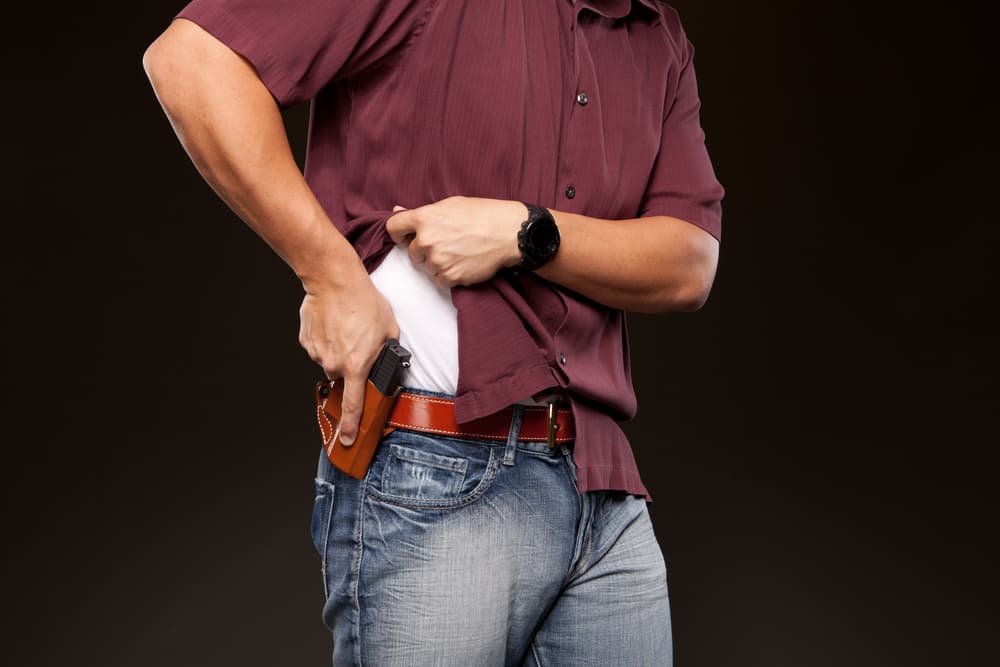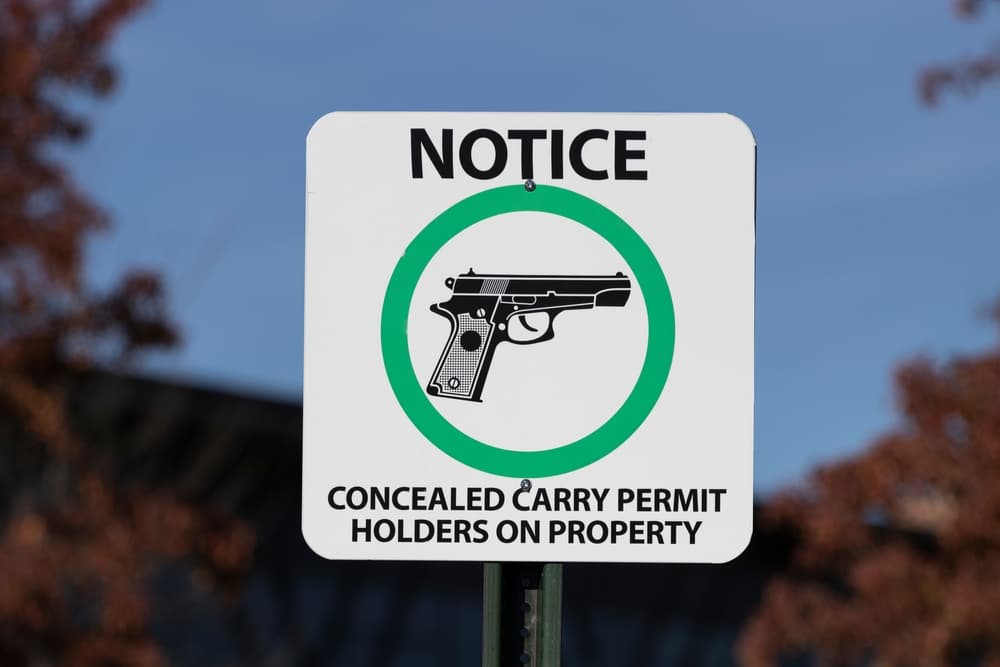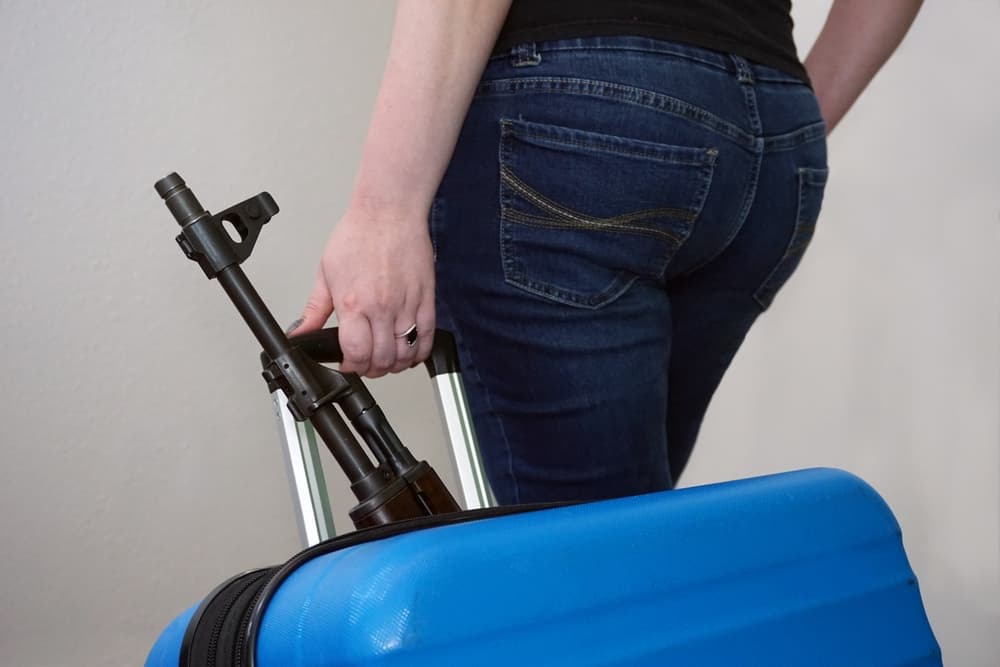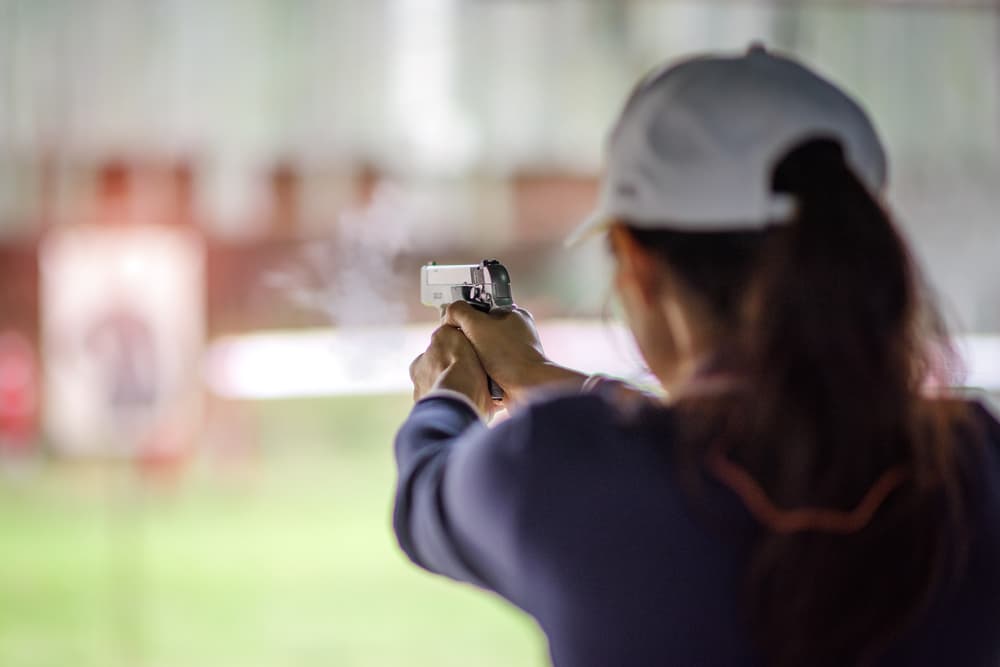As of 2024, concealed carry is legal in all 50 states, but the regulations and requirements can vary widely from state to state. Understanding these differences is vital, especially for Texas residents in Abilene and San Angelo, who may find themselves traveling or dealing with concealed carry issues locally.
As a criminal defense attorney primarily serving West Texas, David M. White often encounters cases related to concealed carry laws. At the Law Offices of David M. White, we understand the categories of concealed carry laws, focus on Texas-specific regulations, and can advise our clients on the potential legal issues that can arise from concealed carry violations.
What is Concealed Carry?
Concealed carry refers to carrying a firearm in public in a concealed manner, typically under clothing or in a bag. The legality of concealed carry varies significantly from state to state, making it crucial for gun owners to understand both local and federal regulations.
Categories of Concealed Carry Laws

Concealed carry laws across the U.S. fall into three main categories:
Permitless Carry States (Constitutional Carry)
In permitless carry states, individuals can carry a concealed firearm without a permit. This is often referred to as "constitutional carry," based on the belief that the Second Amendment provides this inherent right.
As of 2024, 29 states, including Texas, allow permitless carry. This means that in Texas, residents can carry a concealed firearm without a license, provided they meet certain requirements. Permitless carry states are:
- Alabama
- Alaska
- Arizona
- Arkansas
- Georgia
- Idaho
- Indiana
- Iowa
- Kansas
- Kentucky
- Maine
- Mississippi
- Missouri
- Montana
- Nebraska (Effective from 2023)
- New Hampshire
- North Dakota (Residents only)
- Ohio
- Oklahoma
- South Dakota
- Tennessee
- Texas
- Utah
- Vermont
- West Virginia
- Wyoming (Residents only)
Shall-Issue States
Shall-issue states require a permit for concealed carry but mandate that it be issued if the applicant meets specific criteria, such as passing a background check and completing a firearms safety course. In these states, local authorities have little to no discretion to deny a permit once the statutory requirements are met.
- Colorado
- Connecticut
- Delaware
- Florida
- Hawaii (Note: Hawaii is technically a "shall-issue" state, but the process can be restrictive, bordering on "may-issue")
- Illinois
- Louisiana
- Maryland (Changed from "may-issue" to "shall-issue" after 2023)
- Massachusetts
- Minnesota
- Nevada
- New Mexico
- North Carolina
- Oregon
- Pennsylvania
- Rhode Island (for state-level permits)
- South Carolina
- Virginia
- Washington
- Wisconsin
May-Issue States
In may-issue states, local authorities have broad discretion in deciding whether to issue a concealed carry permit, even if the applicant meets all the necessary requirements. This can include demonstrating a "good cause" for needing the permit, which is often interpreted strictly. These laws can make it more challenging for individuals to carry a concealed weapon legally.
- California
- Delaware (for county-level permits)
- Hawaii (Even though legally a "shall-issue" state, in practice, it operates as a "may-issue")
- Maryland (Before 2023)
- Massachusetts (Certain jurisdictions)
- New Jersey
- New York
- Rhode Island (for city/town permits)
Some states have different laws for residents versus non-residents or different types of permits (e.g., local vs. state). Laws are subject to change, so gun owners should check the most current regulations in any state before carrying a concealed weapon.
Concealed Carry in Texas: What You Need to Know
As mentioned, Texas is a permitless carry state, meaning residents do not need a license to carry a concealed handgun in most public places. This law went into effect on September 1, 2021. However, this does not mean anyone can carry a firearm wherever and whenever they want. Certain restrictions apply, and understanding these is essential to avoid legal trouble.
For example, individuals must still adhere to federal firearm laws, which prohibit certain people from possessing firearms, such as those with felony convictions, individuals convicted of domestic violence, or those under certain protective orders. Additionally, while you can carry a firearm without a license, it is still illegal to carry it in certain locations, such as schools, polling places, and government buildings.
Potential Legal Issues with Concealed Carry in Texas

As of September 1, 2021, Texas allows eligible individuals to carry handguns, openly or concealed, without a state-issued License to Carry (LTC). However, it's crucial to understand that this law doesn't create a free-for-all situation. There are still important restrictions and considerations:
- Age Requirement: Individuals must be at least 21 to carry without a license unless they are active-duty military personnel.
- Prohibited Persons: Those prohibited by state or federal law from possessing firearms are still barred from carrying.
- Location Restrictions: Certain locations remain off-limits for carrying firearms, including:
- Schools and school buses
- Polling places during elections
- Secure areas of airports
- Bars and other establishments that derive 51% or more of their income from alcohol sales
- Correctional facilities
- Hospitals and nursing homes (unless given written authorization)
- Amusement parks
- Places of worship (unless given permission)
- Private Property Rights: Property owners and businesses can prohibit firearms on their premises by posting appropriate signage.
- Duty to Inform: When interacting with a peace officer, individuals must disclose if they are carrying a handgun if asked.
Benefits of Obtaining a License to Carry (LTC)
While permitless carry is now legal in Texas, there are still advantages to obtaining an LTC:
- Reciprocity: An LTC allows Texans to carry in other states that recognize Texas permits.
- Faster Firearm Purchases: LTC holders can skip the National Instant Criminal Background Check System (NICS) check when purchasing firearms from licensed dealers. This is because the LTC involves a thorough background check, making an additional NICS check redundant at the time of purchase.
- Additional Training: The LTC course provides valuable education on firearm laws, safety, and proper handling.
- Expanded Carry Locations: Some locations prohibiting unlicensed carry may allow LTC holders to carry.
Traveling with a Firearm: Understanding Reciprocity and State-Specific Laws
If you plan to travel outside of Texas with your firearm, it's essential to understand the laws of the states you will be visiting. While Texas does not require a permit for concealed carry, other states may have different rules. Some states recognize Texas's permitless carry laws, while others require a permit or prohibit concealed carry altogether.
Reciprocity Agreements
Reciprocity agreements between states determine whether a concealed carry permit from one state will be recognized in another. Texas has reciprocity agreements with many states, allowing permit holders to legally carry firearms across state lines. However, in states without such agreements, you may be required to obtain a permit or comply with specific local laws.
For example, if you plan to travel from Abilene to Colorado, you need to understand that Colorado is a shall-issue state. While they recognize Texas concealed carry permits, you still need to be aware of local restrictions and rules about where you can carry your firearm.
Legal Consequences of Non-Compliance
Failing to comply with another state's concealed carry laws can lead to severe legal consequences, including arrest, fines, and even imprisonment. Before traveling, always research the specific laws of your destination state and ensure you fully comply with their regulations.
Potential Criminal Charges Connected to Carrying a Firearm in Texas

While Texas laws are relatively permissive when it comes to concealed carry, there are several ways in which carrying a firearm can lead to criminal charges. Here are some common scenarios:
Unlawful Possession of a Firearm
Even though Texas allows permitless carry, certain individuals are prohibited from carrying firearms. If you have a prior felony conviction or are subject to a protective order, carrying a concealed weapon can lead to charges of unlawful possession of a firearm. This serious offense can result in felony charges, significant fines, and prison time.
Carrying in Prohibited Places
As we mentioned above, even with permitless carry, there are specific places where firearms are not allowed. For instance, carrying a firearm into a school or a courthouse, such as the Taylor County Courthouse, is illegal. Violating these restrictions can lead to criminal charges, even if you are otherwise legally carrying your weapon.
Brandishing or Reckless Discharge
How you carry and use your firearm can also result in legal trouble. If you brandish your firearm in a threatening manner or discharge it recklessly, you can be charged with crimes such as assault with a deadly weapon or reckless endangerment.
Firearm Use During the Commission of a Crime
If a firearm is used during the commission of another crime, such as robbery or assault, the penalties can be significantly enhanced. For example, if you are involved in a bar fight in downtown Abilene and brandish or use a firearm, what might have been a misdemeanor assault charge can quickly escalate to a felony with severe consequences.
Self-Defense and Texas Stand Your Ground Laws

Carrying a concealed firearm for self-defense is a significant responsibility that comes with serious legal implications. In Texas, where the Stand Your Ground law is in effect, individuals who carry firearms must be fully aware of the circumstances under which they are legally justified to use deadly force.
The Stand Your Ground law means that individuals have no duty to retreat before using force, including deadly force, if they are in a place where they have a legal right to be. This contrasts with "Duty to Retreat" states, where individuals must attempt to avoid conflict before resorting to force.
Under Texas law, if you reasonably believe that deadly force is necessary to protect yourself or others from an imminent threat of severe injury or death, you can legally use that force without attempting to retreat first.
When Deadly Force is Justified
The justification for using deadly force in Texas is outlined in Chapter 9 of the Texas Penal Code. According to the statute, deadly force is permissible for:
- Self-Defense: If an individual reasonably believes that deadly force is immediately necessary to protect themselves against another person's use or attempted use of unlawful deadly force.
- Defense of Others: If deadly force is necessary to protect a third party from an attack that could result in serious bodily injury or death.
- Protection of Property: In limited circumstances, Texas law allows deadly force to prevent specific crimes such as arson, burglary, robbery, or theft during the nighttime when it is necessary to prevent the perpetrator from fleeing with the property.
However, deadly force must always be proportionate to the threat. For example, using a firearm against an unarmed individual who poses no immediate threat of death or severe injury could be deemed excessive and unjustified.
Legal Consequences of Using a Concealed Firearm in Self-Defense
While Texas law provides strong protections for individuals who use firearms in self-defense, there are still potential legal consequences to consider:
- Criminal Charges: Even if you believe you were justified in using deadly force, law enforcement and prosecutors will review the incident to determine if it falls within the bounds of self-defense. If the use of force is deemed excessive or unjustified, you could face criminal charges such as manslaughter or murder.
- Civil Liability: Even if you are not criminally charged, you may still face civil lawsuits from the individual you used force against or their family. Texas law provides some civil immunity for justified use of force, but this immunity is not absolute, and you could still be sued for damages.
- Impact on Your Concealed Carry License: A criminal conviction related to using deadly force can result in the revocation of your LTC and the loss of your right to carry a firearm. The legal process can be lengthy, expensive, and emotionally draining, even if you are acquitted.
The Role of a Criminal Defense Attorney in Concealed Carry Cases
If you face charges related to concealed carry in Texas, seek legal representation immediately. A skilled criminal defense attorney, such as David M. White in Abilene and San Angelo, can help you navigate the complexities of Texas gun laws and work to protect your rights.
Defending Against Firearm Charges
There are several defenses that an attorney might use to contest firearm-related charges. For example, if you are charged with unlawful possession, your attorney might argue that you were unaware of the prohibition or falsely accused. In cases involving carrying in prohibited places, it might be possible to argue that you were unaware of the restrictions or that proper signage was not in place.
Navigating Complex Legal Issues
Concealed carry laws can be complex, and the consequences of violating these laws can be severe. A defense attorney can help you understand the charges against you, explore potential defenses, and work towards the best possible outcome in your case. Whether you're facing a misdemeanor for carrying in a prohibited area or felony charges for unlawful possession, having experienced legal representation is crucial.
Contact the Law Offices of David M. White for Legal Assistance with Criminal Charges Related to Concealed Carry Laws in Texas
If you face legal issues related to concealed carry, the Law Offices of David M. White is here to help. With a deep understanding of Texas gun laws and a commitment to protecting your rights, David M. White can provide the guidance and representation you need.
Contact the office today to schedule a consultation and discuss your case. Call our Abilene office at 325-437-3311, our San Angelo, TX, office at 325-221-4421, or contact us online.
